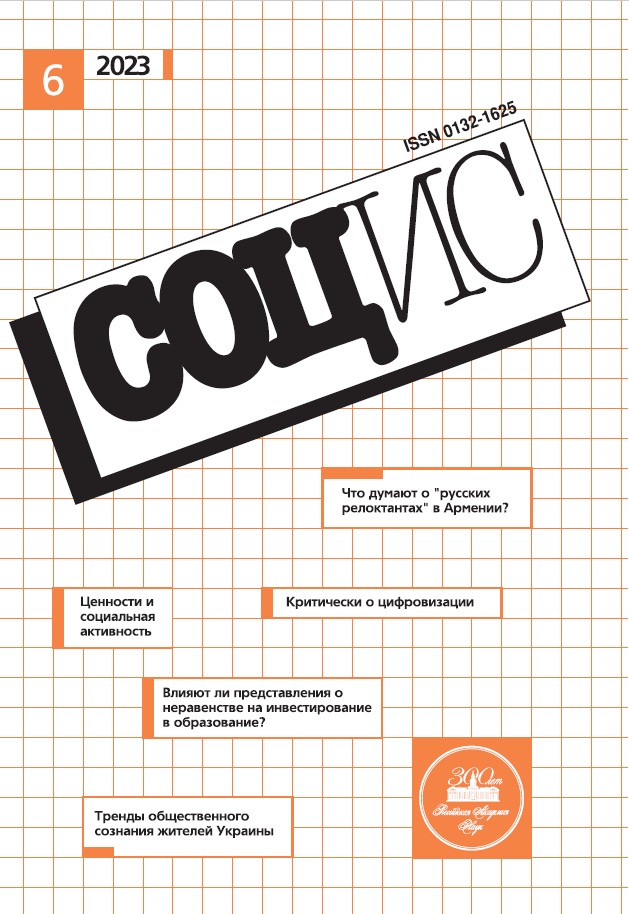Values and Socialization of Youth: the Case of the Russian Federation and China
- Authors: Ли Цзяньхуэй L.J.1
-
Affiliations:
- St. Petersburg State University
- Issue: No 6 (2023)
- Pages: 152-158
- Section: Articles
- URL: https://cijournal.ru/0132-1625/article/view/661761
- DOI: https://doi.org/10.31857/S013216250026385-6
- ID: 661761
Cite item
Abstract
The article examines changing values of contemporary youth and their parents' generation in China and Russia, two generations with different life experiences, taking into account the emergence of the Internet, a new agent of socialization, which provides young people with a special autonomous space for growing up and forming values. The results of value socialization of young generations in the two countries are evaluated according to two waves of the World Values Survey (1995-1998 and 2017-2020). It is found that changes in youth values tend to coincide with and follow socio-economic and socio-political developments in both societies, media and Internet are an important factor influencing changes in youth values from generation to generation, modern Russian and Chinese youth have changed family values and career attitudes compared to their parents' generation. It is confirmed that the value of education of Russian and Chinese youth is increasing, but young people in both countries consider hedonic values to be more important than their parents' generation. The findings have implications for the study of societal dynamics.
Keywords
About the authors
Li Jianhui Ли Цзяньхуэй
St. Petersburg State UniversityRussian Federation, St. Petersburg
References
- Bao dongming. (2003) Comparison and analysis of two generations' values in contemporary China. Official website of China Education. URL: http://www.ruiwen.com/news/14631.htm (accessed 22.09.2022). (In Chin.)
- Golovin N.A., Petrenko P.A. (2012) Luman's theory of social communication in evolutionary-communicative perspective. Vestnik Sankt-Peterburgskogo universiteta [Vestnik of Saint Petersburg University]. Ser. 12. No. 1: 163–164. (In Russ.)
- Lin Xiandong. (2021) Exploring Youth Social Participation from a New Media Perspective. Chinese Youth Social Science: 99–104. (In Chin.)
- Luhmann N. (2012) The Reality of Mass Media. Moscow: Praxis. (In Russ.)
- Wang Meng. (2018) Exploring Mechanisms of Changes in Chinese Youth Values in the Last 40 Years of Reform and Opening-Up. Contemporary Youth Studies: 31–36. (In Chin.)
- Young Y., Land K.K. (2013) Cohort Analysis Age and Historical Period: New Models, Methods, and Empirical Applications. Ebook. Cleveland, Ohio: CRC Press.
Supplementary files










